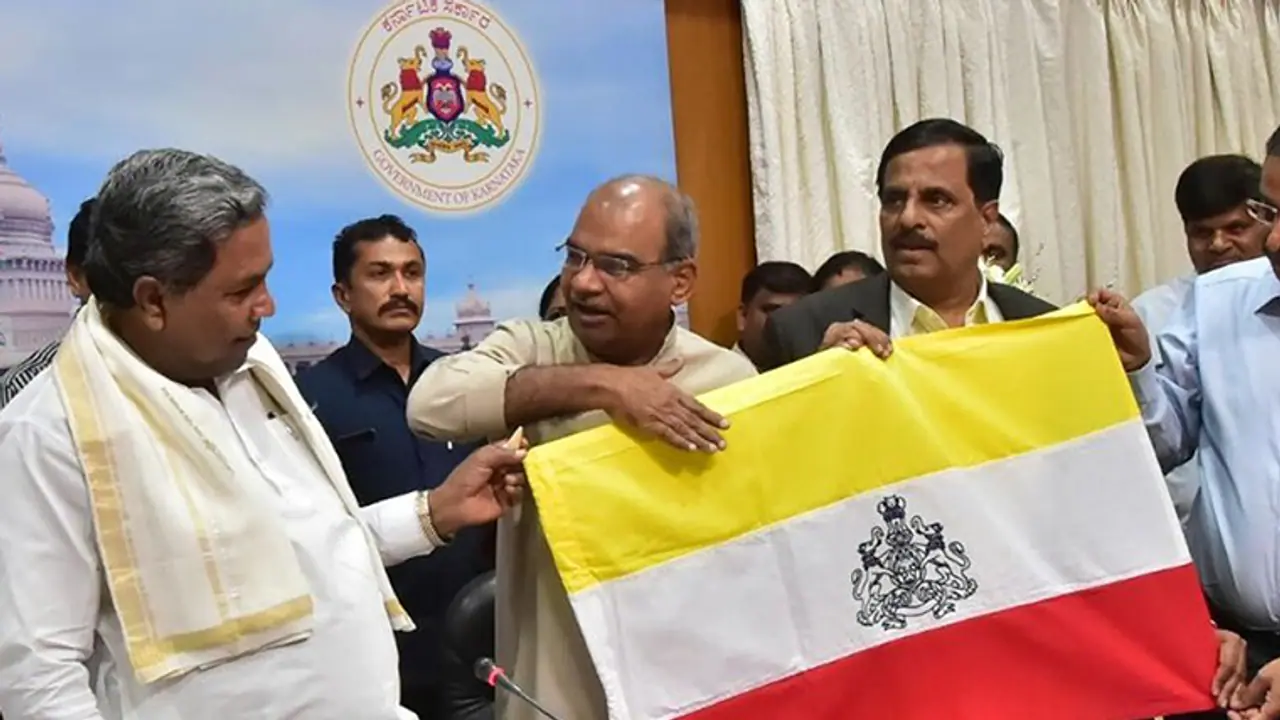Is officiating Karnataka's newly designed flag a threat to national integrity? Here are five factors which disapprove of this notion of regional aspects harming the national factors Here is how empowering the states with the regional aspects helps strengthen the nation
Since the time Hindi is being imposed on the Southern States of India - Karnataka, Tamil Nadu, Kerala, Andhra Pradesh and Telangana, there is a kind of friction among the regional (state) languages and Hindi. Though Indian Constitution clearly states Hindi as one of the official languages along with eight other regional languages, some are trying hard to make people believe that Hindi is the national language.

But the Southern states have again and again tried to shout out loud that Hindi is not the national language and is just like Tamil, Kannada, Malayalam and Telugu languages of the South. This has led to arguments, and there has been a hate campaign to brand anyone speaking against Hindi as anti-national.
The new addition to the wrath of the Hindi-dominated populations is the fact that Karnataka has designed a flag for the state, which has now been sent for the recognition of the Centre to make it official. It looks like the flag has created unrest among the non-Southern states and arguments of the state flag affecting the national integrity are doing the rounds.
Following this argument, Chief Minister of Karnataka has put out some factors explaining the disparity between the northern and southern states regarding allocations and grants, and he has also spoken on how a flag of the state does not affect the national integrity in any manner.
To start with, Karnataka always had a flag (yellow and red) but was just not official. It has so far not clashed between the National Flag and nor has turned them anti-national
Karnataka spends but UP benefits?
Speaking about the real disparity, Siddaramaiah told in his FB post that, comparatively, Karnataka is one of the Southern states which gives more to the Centre and gets way lesser. In fact, for every 1 rupee, Karnataka gives, the state gets in return only 47 paise. Whereas Uttar Pradesh spends 1 rupee and gets Rs 1.79 in return. This calculation is based on the population. In reality, we are paying for the high population in Uttar Pradesh. How is this justified?
Centre's programmes forced upon states?
Some of the programmes etched out by the Centre are not favourable to particular states because the entire nation is kept in mind and not the region. But all the states have to promote the programmes and work towards implementing it. States have no choice but to spend money on implementing the programmes, irrespective of its benefits or no benefits to the states. At least states should have a say and make decisions regarding the programmes it is going to spend money on.
Centre's decision proving costly?
Centre's recent decision to import agricultural produces including chillies from Vietnam through Sri Lanka (South Asian Free Trade Area- SAFTA) has affected Karnataka, and Kerala states badly. The Centre is not bothered by the losses this policy has incurred on the states nor are its programmes helping the farmers in general.
Importance of Language
India was divided into states on the basis of languages. So, language or languages are an integral part of every state, and it should be protected and promoted. For example, Kannada is the official language of the state but has people speaking other languages including Tulu, Konkani, Kodava and Beary languages too. Some of these languages have hundreds of dialects too. Thus the state has been one in diversity.
The wrong notion
When someone says he/she loves Kannada and the Kannada flag it doesn't mean he/she doesn't love India or Indian flag. Nothing will stop us from contributing to the integrity of the nation. "We are the children of mother India and are strengthening the nation through empowering the regional aspects of the states," he said.
